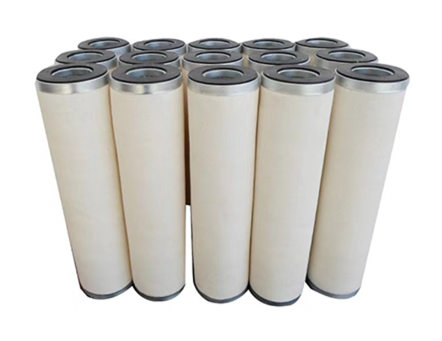 Tel:
+8615930870079
Tel:
+8615930870079
ก.ค. . 31, 2024 12:38 Back to list
Understanding the Benefits and Applications of Cartridge Filter Air Systems in Various Industries
The Essential Role of Cartridge Filter Air Systems in Modern Industries
In today's industrial landscape, the demand for clean air and efficient filtration systems has never been higher. Among the various filtration options available, cartridge filter air systems have emerged as a crucial solution for maintaining air quality and ensuring operational efficiency in various sectors, from manufacturing to pharmaceuticals.
What is a Cartridge Filter Air System?
A cartridge filter air system consists of a cylindrical filter element housed within a filter casing. These filters utilize advanced materials, such as pleated fabric or high-efficiency particulate air (HEPA) media, to capture particulates and contaminants from the air. The design of cartridge filters allows for a larger surface area, which enhances their dirt-holding capacity and extends their life cycle compared to traditional filter systems.
How Cartridge Filters Work
The process begins as air enters the filter system, typically through an inlet. As the air passes through the cartridge, contaminants such as dust, pollen, and other particulate matter are captured on the surface of the filter media. The clean air then exits the system, significantly improving air quality within the facility. Cartridge filters can be configured in various ways, including vertical or horizontal installations, to suit the specific needs of an operation.
Applications Across Industries
Cartridge filters are highly versatile and find applications in a wide range of industries. In the manufacturing sector, these filters are vital for controlling dust emissions, ensuring compliance with environmental regulations, and protecting the health of workers. For example, woodworking shops and metal fabrication facilities often depend on cartridge filters to manage fine particulate matter generated during processes like cutting, sanding, and welding.
cartridge filter air

In the food and pharmaceutical industries, stringent air quality standards necessitate the use of high-efficiency filtration solutions. Cartridge filters equipped with HEPA or ULPA (Ultra-Low Penetration Air) media can effectively remove airborne bacteria, viruses, and allergens, creating a safe environment for production and packaging.
Benefits of Cartridge Filter Air Systems
1. Efficiency Cartridge filter systems are designed to maximize airflow while minimizing energy consumption. Their efficient design reduces pressure drop, allowing for optimal system performance.
2. Cost-Effectiveness By investing in long-lasting cartridge filters, businesses can reduce maintenance costs and improve operational efficiency. The extended service life of these filters decreases the frequency of replacements, generating savings over time.
3. Reduced Downtime The easy-to-replace cartridge design minimizes the time required for maintenance, ensuring that production processes remain uninterrupted. This is particularly critical in industries where time is money.
4. Environmental Compliance With increasing regulatory pressures, companies must adhere to strict air quality standards. Cartridge filters help businesses meet these requirements, reducing emissions and contributing to sustainability efforts.
Conclusion
As industries continue to evolve, the importance of efficient air filtration systems will only grow. Cartridge filter air systems offer a reliable and effective solution for maintaining air quality and protecting both employee health and equipment integrity. By selecting the right cartridge filter system, businesses can optimize their operations, ensure compliance with regulations, and contribute to a cleaner, healthier environment for all. Whether in manufacturing, food processing, or pharmaceuticals, the benefits provided by cartridge filter air systems make them an indispensable component of modern industrial facilities.
-
Types and Applications of Air Filtration CartridgesNewsJul.28,2025
-
The Role of Gas Turbine FiltersNewsJul.28,2025
-
Mastering Air Filter Cartridge UseNewsJul.28,2025
-
Advanced Turbine Filters for Modern Gas TurbinesNewsJul.28,2025
-
Cellulose Air Filter Cartridge Advantages in Dust FiltrationNewsJul.28,2025
-
Cellulose Filters for Air Particle ReductionNewsJul.28,2025

 Email:
Email:





